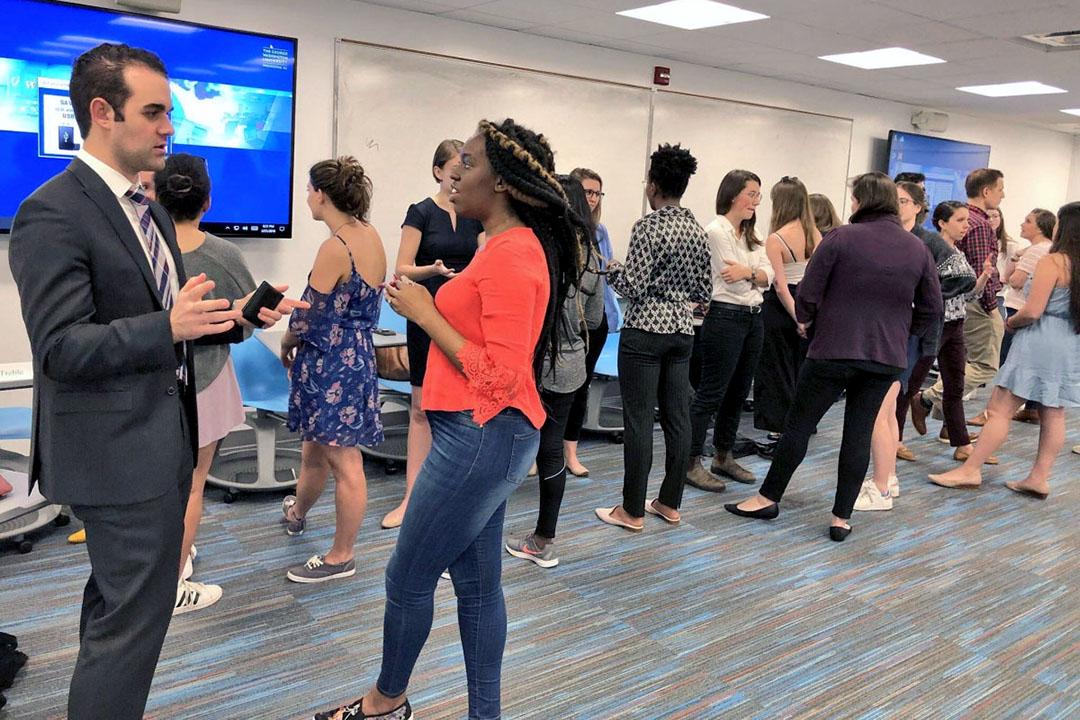About
GW’s Human Services and Social Justice (HSSJ) Program has a long history of empowering leaders and scholar-practitioners in the professional social justice field. The program has been part of the GW Department of Sociology since 1996 and has flourished in the decades since. Formerly known as the Human Services Program, the name was changed in 2014 to incorporate a new curriculum and revised program goals.
HSSJ undergraduate students often win research awards from GW and other institutions around the country, and our alumni have found success across law, government, health care, education and the nonprofit world. Faculty are engaged in research and community projects around D.C. and across the globe, securing research funding from institutions that include the Learning by Giving Foundation, the European Union Social Fund, the Fulbright Program and the Corporation for National and Community Service.
Connect With Our Community
What Are Human Services?
The human services profession emerged in the 1960s and initially focused on mental health. Most people in the field then worked primarily with marginalized communities, including people of color, women and people living with mental illness. Social justice continues to be the ultimate aim and vision of human services work. In GW's program, we follow scholar Lee Anne Bell's definition of social justice: “full and equal participation of all groups in a society that is mutually shaped to meet their needs.”
The roots of the academic field of human services drew from social work and psychology, but over time expanded to include theories, research and best practices from education, sociology and nonprofit management to better address the systems and contexts in which individuals and communities exist. By adapting and broadening its knowledge base, the field became more resilient and effective in fostering individual, organizational and systemic well-being.
Our Interdisciplinary Approach
GW’s Human Services and Social Justice Program is interdisciplinary, incorporating several academic fields as well as a robust service-learning component with many nonprofit partnerships in the local community. Together, human services and social justice complement and enhance one another by offering a strong theoretical lens through which to critically analyze the interplay of individuals, organizations, societies and global systems. We ground learning in a vision of social justice that prioritizes human agency, social responsibility and democratic participation. We empower students to understand, critically reflect on and intervene in oppressive patterns and behaviors, creating change.
- When should I declare my major/minor?
-
You can declare your major/minor anytime, but CCAS requires it second semester sophomore year.
- Can I study abroad?
-
Yes! Please talk to your advisor about when is the best time for you to go abroad.
- What are the requirements for the major/minor?
-
For more information about specific credits and classes, please visit the BA in HSSJ page,the minor page or the micro-minor page.
- Who can I contact if I am thinking about majoring/minoring?
-
Please contact the program director, Michelle Kelso for your questions about the HSSJ major/minor.
- What is service and how much is needed to complete the major?
-
Service learning means working on projects or research with community based organizations. We help find site placements for classes. The major requires 300+ hours by graduation. For more information about service please visit our service learning page.
- Where do alumni work?
-
Our alumni work in a variety of fields including non-profits, healthcare, education, and the private sector. To see specific organizations our alumni have worked please see our Alumni Outcomes page.





